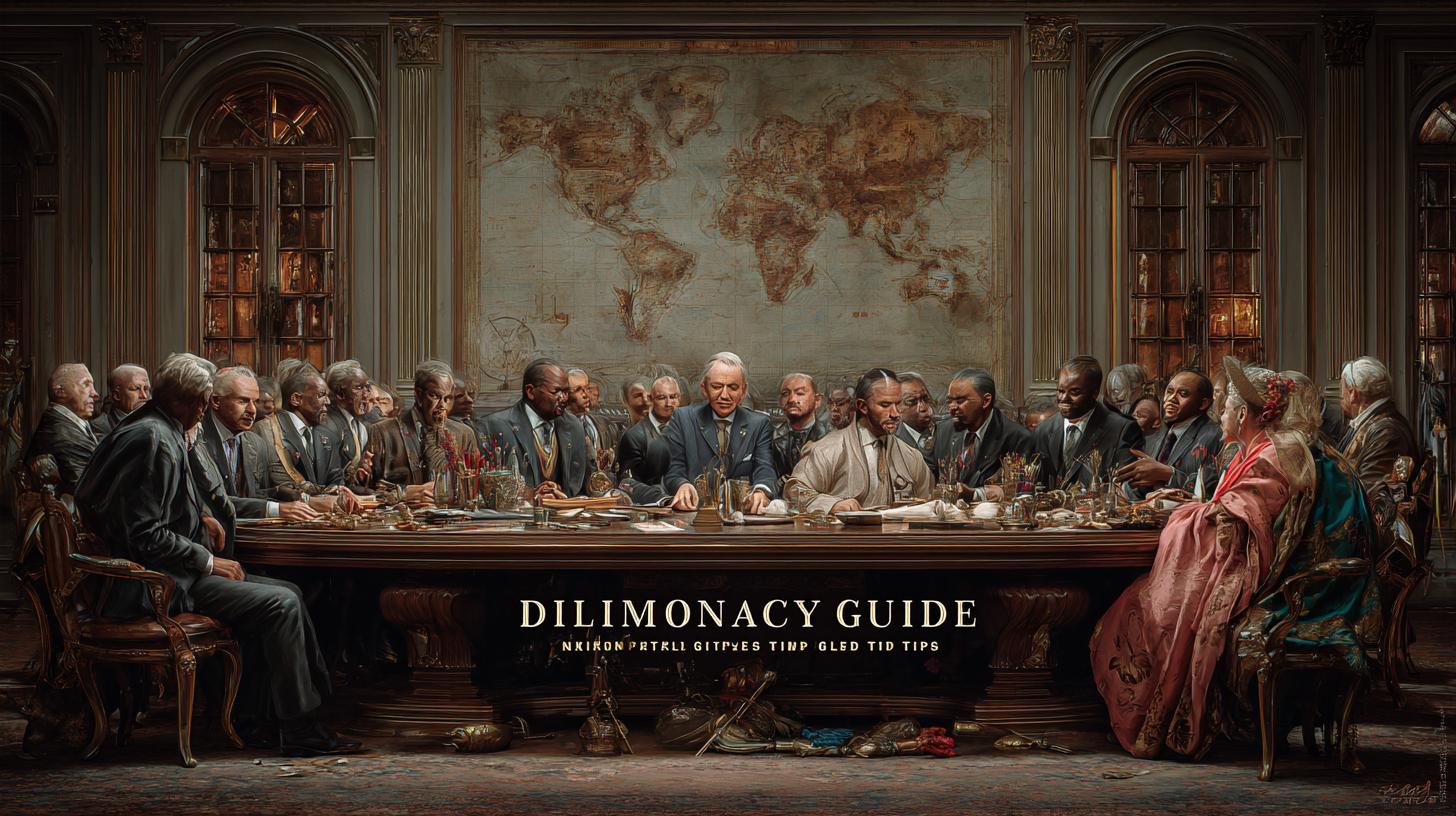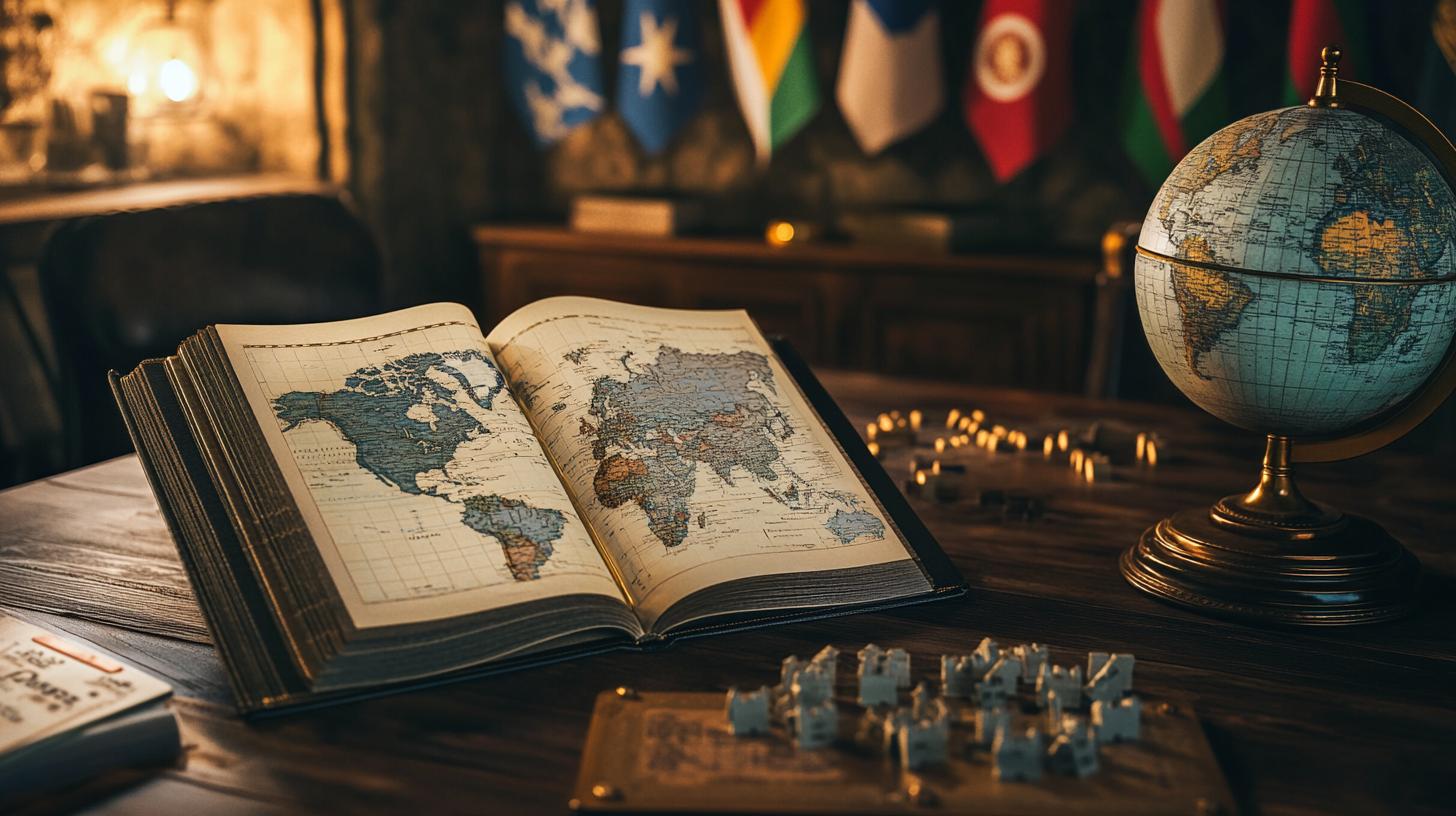Diplomacy Guide Tips for Each Nation: Mastering International Relations
Welcome to your ultimate Diplomacy guide tips for each nation, where we unpack proven strategies tailored to every corner of the globe. Whether you’re a seasoned envoy or just curious about the art of statecraft, this article will hook you with actionable insights, real-world examples, and cultural nuances that make all the difference. You’ll learn why a one-size-fits-all approach fails and how adapting to national priorities boosts your credibility and influence. From pact-building in Western democracies to respectful engagement with emerging economies, every tip here is designed for immediate implementation. Let’s embark on this global journey together—your roadmap to forging stronger alliances and achieving diplomatic success awaits.
Understanding the Foundations of International Diplomacy
Before diving into nation-specific tactics, it’s crucial to grasp the overarching principles that underpin successful diplomacy. At its core, diplomacy is about communication, trust, and reciprocal respect. It relies on deep cultural awareness and strategic patience, ensuring that each interaction builds momentum toward shared goals. By mastering these universal foundations, you’ll be better equipped to tailor your approach to diverse political landscapes. Let’s explore how these pillars shape effective global engagement.
Diplomacy Guide Tips for Each Nation
Diplomacy Tips for Western Democracies (USA, UK, Germany)
- Align with shared values: Highlight human rights, free markets, and democratic ideals to resonate with policymakers.
- Leverage multilateral forums: Use G7 or EU platforms to amplify your voice and build consensus.
- Provide data-driven proposals: Western democracies appreciate transparent research and measurable outcomes.
Diplomacy Tips for Emerging Economies (China, India, Brazil)
- Focus on economic partnerships: Offer trade agreements, tech transfer, and infrastructure investment opportunities.
- Show respect for sovereignty: Acknowledge national development goals and avoid overt criticism.
- Utilize cultural diplomacy: Sponsor student exchanges, film festivals, and joint research projects.
Diplomacy Tips for Small or Neutral States (Switzerland, New Zealand, Costa Rica)
- Promote conflict resolution expertise: Emphasize your history of impartial mediation.
- Collaborate on environmental and humanitarian initiatives: These countries often prioritize sustainable development.
- Offer capacity-building programs: Training and resource sharing build long-term goodwill.
Diplomacy Tips for Authoritarian Regimes (Russia, North Korea)
- Maintain open channels cautiously: Use back-channel communications to reduce public posturing.
- Balance firmness with pragmatism: Stand firm on red lines like non-proliferation, while exploring low-profile cooperation.
- Engage regional stakeholders: Sometimes, neighboring states or organizations can facilitate breakthroughs.
Key Benefits of Nation-Specific Diplomacy Strategies
Customizing your diplomatic approach yields significant dividends. First, you build trust faster by demonstrating genuine cultural understanding. Second, negotiations become more efficient when you address the other nation’s top priorities. Third, targeted strategies help mitigate misunderstandings and preempt conflicts. Finally, you create a reputation for being both respectful and results-oriented—qualities that open doors for future collaboration.
Overcoming Common Diplomatic Challenges
No strategy is without hurdles. Language barriers can lead to misinterpretations; investing in skilled interpreters and cultural briefings is vital. Trust deficits often stem from historical grievances—acknowledge these sensitively and offer confidence-building measures. Lastly, shifting alliances demand agility: stay informed on geopolitical trends, adjust your tactics accordingly, and maintain back-up channels.
SEO Recommendations and Internal Linking Strategies
To maximize online visibility, ensure your meta description includes the primary keyword: “Diplomacy guide tips for each nation.” An example could be: “Discover expert diplomacy guide tips for each nation—boost your global influence with tailored strategies, cultural insights, and practical examples.” Internally link to related posts such as “5 Powerful Negotiation Techniques” and “Conflict Resolution Strategies for Modern Diplomacy”. Use descriptive anchor text and keep URLs concise.
Your Next Step in Mastering Diplomacy
You’ve now absorbed a comprehensive collection of nation-specific diplomacy guide tips for each nation. It’s time to put them into practice: draft a tailored outreach plan for your next international engagement, share these insights with your team, and subscribe to our newsletter for ongoing updates. Ready to elevate your diplomatic game? Reach out via our contact page and let’s design a strategy that transforms dialogue into lasting partnerships.


